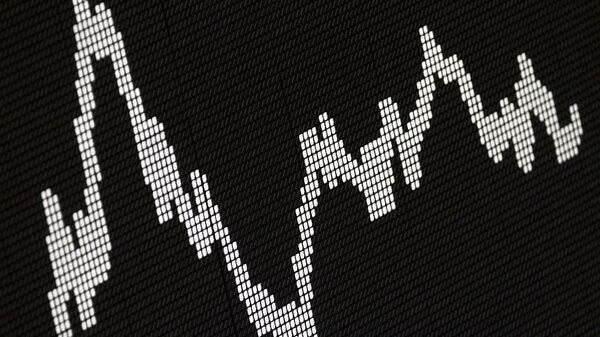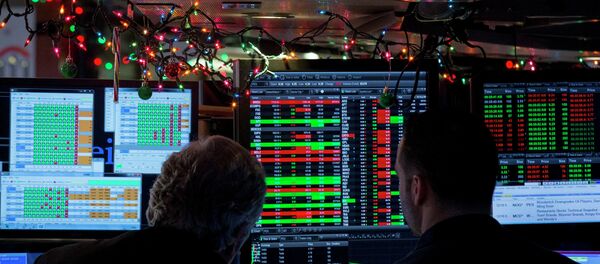Kristian Rouz – Global stocks came to a halt after Tuesday’s losses on Wall Street and the dollar advanced only slightly as US inflation accelerated. Crude oil steadied somewhat, providing support for select Russian stocks listed in New York, naturally, in the energy sector.
Wednesday’s trading in Asia-Pacific was generally mixed, as Wall Street’s pessimism of the previous day weighed on investors’ sentiment. However, as the dollar gained, the export-driven economies cheered, with Japanese equities advancing slightly. The Nikkei 225 Index added 0.2%, trading near its 15-year highs, posted several sessions ago.
MSCI APEX sans Japan Index also rose by 0.2%, extending yesterday’s modest gains. Shares in Korea’s Kospi Index and Australia’s S&P/ASX 200 were flat, while mainland China’s Shanghai Composite Index lost 1% amidst high volatility triggered by significant risks to the economy, mainly in the banking sector and real estate, and the overall slowdown.
Mainland China’s stock markets has skyrocketed by 55% since last November when the People’s Bank of China (PBOC) first announced it could introduce monetary easing policies in order to support the ever-slowing economy. As China’s indebtedness is almost 280% its GDP, a possible implementation of a full-scale money-printing program, while boosting the nation’s financial sector, will put the economy in a riskier position. Asian markets, showing little growth already, are signaling stocks are overbought and there’s little to no support from the real economy.
Tuesday’s trading on Wall Street was dominated by the news from Federal Reserve, reaffirming that macroeconomic data will determine when and whether the first interest rate hike since 2006 will occur. The recent data has shown the cost of living in the US rose above the forecast in February, a positive sign as US inflation is far below its target. The Dow slid 0.58%, the S&P 500 shed 0.61% overnight amid the arising concerns that a stronger dollar might negatively reflect on the US corporate profits.
US bonds are also yielding less than those of select emerging markets, though still above those in Europe. That said, some investment money might flee to the most reliable of the Third world markets in mid-to-longer-term.
Europe was the bright spot on the global financial map Tuesday. Investors welcomed optimistic macroeconomic data posted earlier that day, and the markets ended just below the recently posted 7.5-year highs. The preliminary Purchasing Managers’ Index (PMI) readings for Germany and France have shown the both economies expended at the greatest scale since last July.
The German DAX Index added 0.9%, while the pan-European FTSEurofirst 300 Index rose by only 0.3%, weighed on by mainland China’s pessimism. Commodities-related shares fell in Europe on Tuesday. Greek stocks advanced 3.7% as Athens confirmed its commitment to its necessary reforms.
Ahead of Wednesday’s session in Europe, the decisive factor for most shares would be the publication of the German Ifo survey of business climate. Many investors are nervous ahead of the news, suggesting a sell-off in shares at the opening. Futures for Germany’s DAX and France’s CAC 40 are now down 0.3%.
Crude oil steadied in the US, retreating only a bit outside North America. WTI crude added $0.06 to $47.51/bbl, while Brent oil traded at $55.11/bbl.
The oil stabilization provided a footing for three consecutive days of gains in Russian energy stocks listed in New York, with Surgutneftegaz adding 4.1% to its 4-month high. Gazprom added 3.1% in New York. The Bloomberg Russia-US Index rose by 0.4%. Russian stocks have rallied 17% this year as fighting in Ukraine has paused.
The US dollar is steady at 119.61 yen (-0.1%), while the euro weakened to $1.0923. US data is supportive towards the dollar as a higher inflation might suggest the Fed hike is nearer, a good sign for both Japan and the Eurozone.




